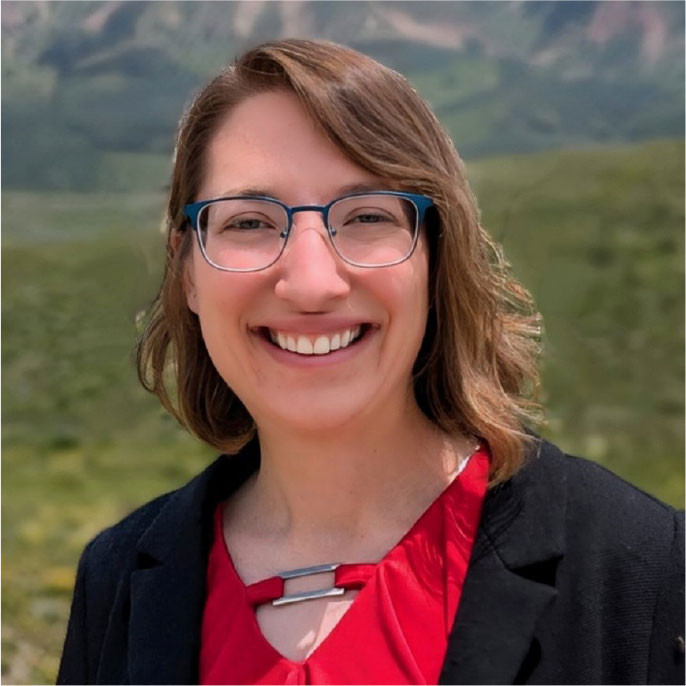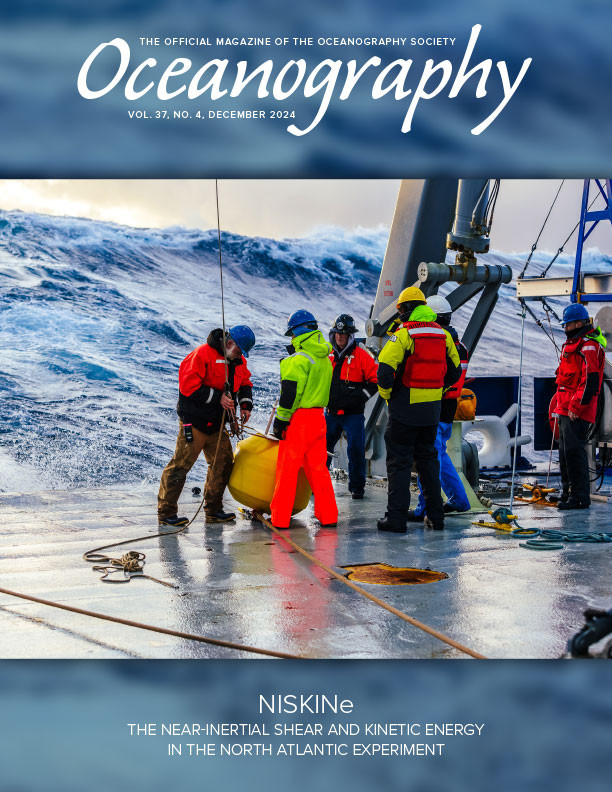Full Text
 |
EMMA R. OZANICH, Project Scientist and Acoustic Modeler, JASCO Applied Sciences (US office)
Degree: When, where, what, and what in? In December 2020, I defended my PhD dissertation in oceanography at Scripps Institution of Oceanography, University of California San Diego, remotely via Zoom. I studied ocean acoustics and developed data-driven methods for localizing sound, considering, for example, how can neural networks infer relationships between underwater array measurements and the locations of cargo vessels thousands of kilometers away?
Did you stay in academia at all, and if so, for how long? Yes, for about a year. I immediately went into postdoctoral research at the Woods Hole Oceanographic Institution (WHOI). Having become familiar with my postdoc advisor’s research during meetings, I was honored to be offered a position with him. The WHOI postdoc also offered a great opportunity to participate in seagoing experiments. Within the first year, though, I determined an academic role wasn’t where I wanted to be personally. I was feeling burned out, and after completing one publication, I sought an industry position.
How did you go about searching for a job outside of the university setting? I was lucky to have connections from my PhD work and an internship. I knew of JASCO from an early career acoustics workshop, had a positive impression of it through conference presentations, and knew its work had some overlap with academia. When I saw that the company was hiring scientists for its US team, I applied and interviewed.
Is this the only job (post-academia) that you’ve had? If not, what else did you do? I’m in my first job post-academia. For me, working on a team with members from different backgrounds and working with clients were really important experiences to have after being in academic and student roles most of my life.
What is your current job? What path did you take to get there? I’m currently a project scientist at JASCO. At the time I was applying, JASCO was looking for a couple of new team members to help with increased demand in the offshore wind industry.
What did your oceanographic education (or academic career) give you that is useful in your current job? My job is close to what I studied, so I learned many job-specific skills during the PhD. Working with multi-year research projects during my PhD instilled respect for the precision and details that lead to high-quality technical work.
Is there any course or other training you would have liked to have had as part of your graduate education to meet the demands of the job market? I would have liked to spend more time learning cloud-based tools and data access protocols. I had the opportunity to take an evening course on high performance computing (HPC) near the end of my PhD, but it ended early due to fieldwork. Our data storage was usually on local servers. Most modern businesses are internationally connected, so having a good understanding of distributed cloud storage and compute options is important for producing better technical products.
Is the job satisfying? What aspects of the job do you like best/least? The best part of working at JASCO is the opportunity to continue to work among brilliant and self-motivated acousticians who are approachable and respectful of work-life balance. I’m always learning new techniques while also having time outside work for my hobbies and family. The downside for me is that there are ebbs and flows in work volume; I am goal-oriented and always looking forward to new client projects with fixed deadlines.
Do you have any recommendations for new grads looking for jobs? My advice is don’t hesitate to take opportunities even if they are not exactly where you see yourself long term. Don’t stress about that too much. You’ll meet new people and expand your network, and you’ll probably get more respect for taking the initiative than criticism for making some mistakes along the way.

